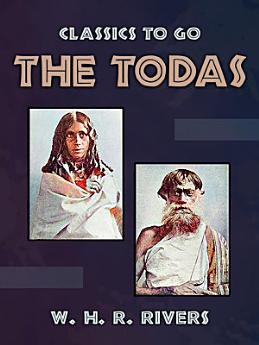The Todas
Nov 2023 · Otbebookpublishing
Ebook
773
Pages
family_home
Eligible
info
reportRatings and reviews aren’t verified Learn More
About this ebook
The Todas is a book written by W. H. R. Rivers, a British anthropologist, and was first published in 1906. This anthropological work focuses on the Toda people, a small indigenous community living in the Nilgiri Hills of Southern India. The Todas are known for their distinctive culture, customs, and way of life. In this book, W. H. R. Rivers provides a comprehensive ethnographic study of the Toda people, their social organization, religious beliefs, rituals, kinship systems, and daily life. He conducted extensive fieldwork and research among the Todas, which allowed him to provide insights into their unique cultural practices."The Todas" is considered a valuable ethnographic work, offering a detailed and insightful look into the lives and customs of this unique indigenous group. It remains a significant contribution to the field of anthropology and the study of South Asian tribal cultures.
About the author
William Halse Rivers Rivers, commonly known as W. H. R. Rivers, was a pioneering British anthropologist, neurologist, and psychiatrist whose work left an indelible mark on multiple fields. Born on March 12, 1864, in Luton, England, Rivers initially trained in medicine, but his insatiable curiosity led him to anthropology and psychology. His interdisciplinary approach was revolutionary, bridging gaps between the physical and social sciences.Rivers' most notable contributions came through his innovative research methods and his empathetic approach to studying indigenous cultures. He is celebrated for his fieldwork in the Torres Strait and Melanesia, where he meticulously documented the social structures, rituals, and languages of the local populations. His work laid the groundwork for modern ethnography and influenced contemporary anthropologists like Bronisław Malinowski and Margaret Mead.Rivers was also a key figure in the early development of psychoanalysis in Britain. His work with shell-shocked soldiers during World War I was groundbreaking, advocating for humane treatment and psychological understanding of trauma long before it became mainstream. His compassionate approach to mental health care earned him both acclaim and controversy, challenging the more rigid medical practices of his time.A mentor to literary figures like Siegfried Sassoon and Wilfred Owen, Rivers' influence extended into the literary world, where his ideas on trauma and human behavior resonated deeply. His legacy is one of intellectual bravery and profound empathy, making him a figure of enduring relevance in both scientific and literary circles.
Rate this ebook
Tell us what you think.
Reading information
Smartphones and tablets
Install the Google Play Books app for Android and iPad/iPhone. It syncs automatically with your account and allows you to read online or offline wherever you are.
Laptops and computers
You can listen to audiobooks purchased on Google Play using your computer's web browser.
eReaders and other devices
To read on e-ink devices like Kobo eReaders, you'll need to download a file and transfer it to your device. Follow the detailed Help Center instructions to transfer the files to supported eReaders.







